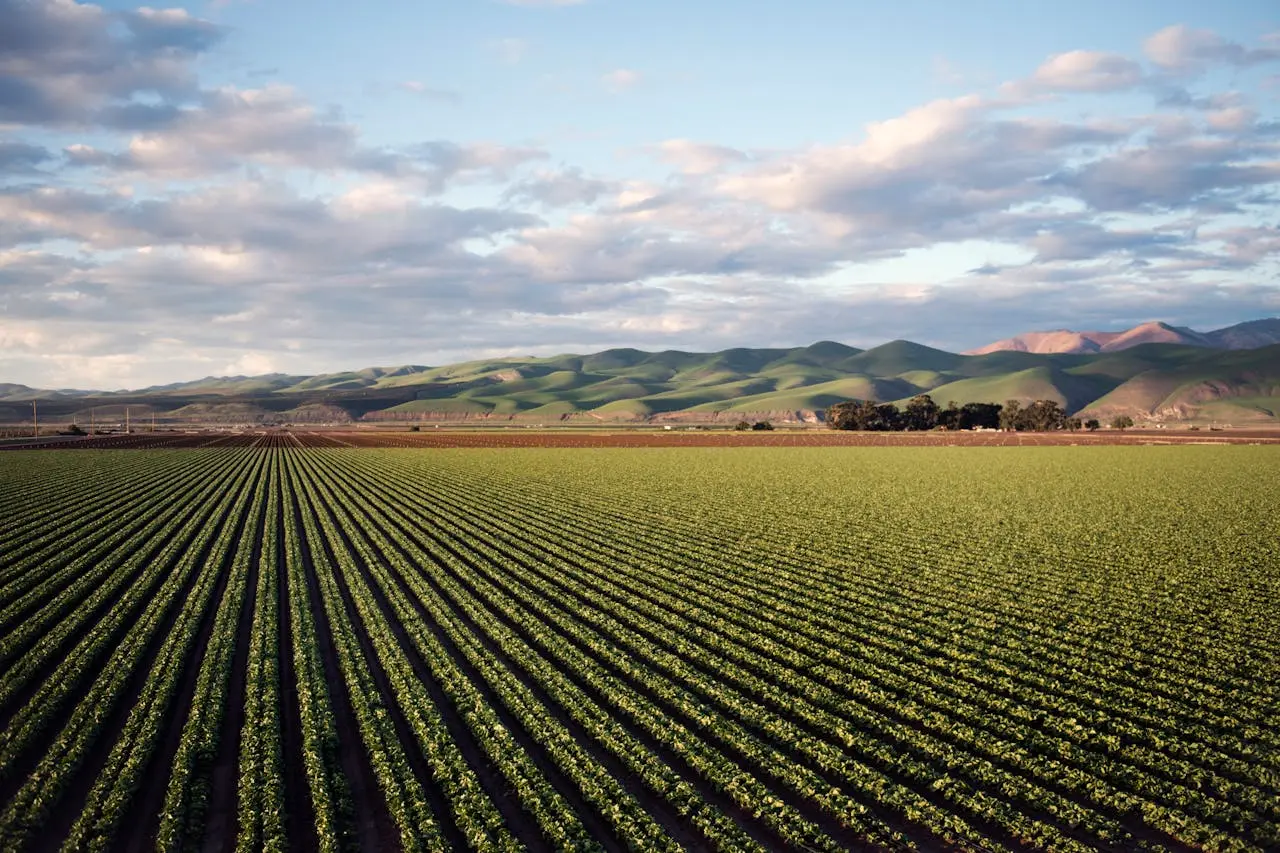Decarbonizing agriculture: Towards sustainable and responsible production
Reading 4 min
June 18, 2025
Summary
The decarbonization of agriculture aims to reduce greenhouse gas emissions while preserving natural resources and ensuring sustainable food production. It is based on practices such as agroecology, the reduction of chemical inputs and the use of innovative technologies.
% of article read

What is decarbonizing agriculture?
Decarbonizing agriculture refers to all practices and strategies aimed at reducing greenhouse gas (GHG) emissions from agricultural activities. This approach is based on the adoption of environmentally friendly agricultural techniques, optimal resource management, and the use of innovative technologies. The goal is to reconcile food security, ecosystem protection, and the fight against global warming for more sustainable and resilient agriculture.
Why is decarbonizing agriculture crucial?
Decarbonizing agriculture is essential to limit its impact on global warming, as this sector represents approximately 14% of global greenhouse gas emissions, including methane and nitrous oxide. By adopting sustainable practices, agriculture can reduce emissions while preserving natural resources, such as soil and water. In addition, a transition to more environmentally friendly methods improves resilience to climate crises and ensures more sustainable food production.
Your free carbon footprint is waiting for you!
Sign up for our free trial, answer 20 questions, and receive your 1st carbon footprint!
Sustainable practices to decarbonize agriculture
Optimized soil management
Optimized soil management is a key practice to decarbonize agriculture, as it allows for more carbon storage while preserving soil fertility. Techniques such as no-till, crop rotation, and the use of cover crops reduce erosion and improve soil health. These practices also limit the use of chemical fertilizers, thereby reducing nitrous oxide emissions.
Adopting agroecology
Agroecology is based on environmentally friendly agricultural practices that aim to reduce greenhouse gas emissions while preserving natural resources. It favors techniques such as mixed farming, agroforestry, and the use of associated crops to strengthen biodiversity and improve soil health. By limiting dependence on chemical inputs and integrating natural solutions, agroecology helps reduce the environmental impact of agriculture. This model also promotes sustainable production, resilient to climatic hazards, and contributes to balanced management of agricultural ecosystems.
Reduction of chemical inputs
Reducing chemical inputs, such as pesticides and synthetic fertilizers, is essential to limit greenhouse gas emissions and preserve soil health. This reduction involves adopting natural solutions, such as biopesticides, compost, or the use of nitrogen-fixing crops. These practices reduce dependence on chemicals while maintaining satisfactory agricultural yields.
Sustainable livestock management
Sustainable livestock management aims to reduce greenhouse gas emissions, particularly methane, while preserving animal welfare and productivity. It is based on practices such as improving animal feed to limit enteric emissions, adopting extensive livestock systems and valorizing manure. These practices help minimize the environmental impact of livestock farming while optimizing available resources.
Use of innovative technologies
Innovative technologies play a key role in the decarbonization of agriculture. Connected sensors make it possible to monitor the water and nutrient needs of crops in real time, thus optimizing their use. Drones facilitate field monitoring, detecting areas to be treated to reduce the use of inputs. In addition, agricultural management software helps to plan crops and measure their environmental impact. Finally, the development of solutions such as biofuels or carbon capture in soils contributes to significantly reducing the carbon footprint of farms.
The benefits and challenges of decarbonizing agriculture
Decarbonizing agriculture has many benefits. It helps reduce greenhouse gas emissions, thus preserving the environment. It also promotes soil health, biodiversity and more sustainable food production. By adopting responsible practices, farmers benefit from greater resilience to climate and economic crises, while meeting consumer expectations for eco-responsible products.
However, this transition poses challenges. Initial investment costs, the need for specific training, and resistance to change sometimes hinder the adoption of these practices. Cooperation between public and private actors is essential to support this transformation.
